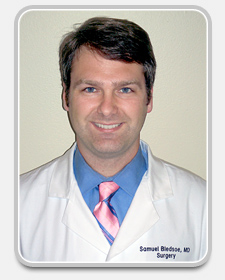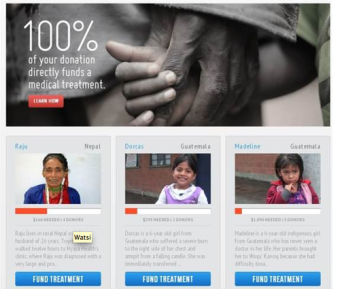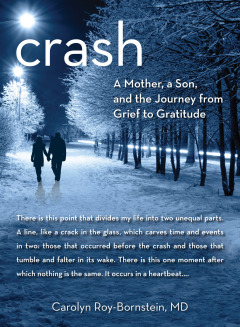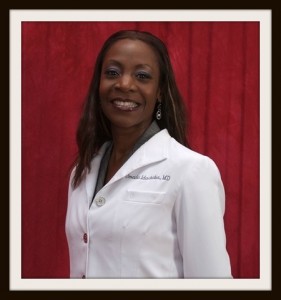 Guest post by Samuel Bledsoe MD
Guest post by Samuel Bledsoe MD
There is an element of a gamble inherent in the medical tourism industry as it currently exists.
An interesting thing happened to me at work the other day. It was Friday afternoon, and I received a call from a primary care doctor. The phone call began with, “I’m really sorry about this, but I have a surgeon’s nightmare in my office.”
This is not a good way to begin a conversation.
He began to tell me about the patient. This particular woman had a Lap Band placed several years ago. For one reason or another, she decided that she would like this converted to a different procedure. She drove by my hospital to get to the airport, hopped on a plane and flew over hundreds of other well-qualified bariatric surgeons in order to reach a surgeon in Mexico where she had her Lap Band removed. She then returned 6 months later and had a sleeve gastrectomy. This is where things go bad.
The patient developed a leak from the staple line on her stomach after the procedure. She was taken back to the operating room for her third procedure where she was washed-out and large drains were placed. Amazingly, four days after the procedure, she was released from the hospital with the large drains still draining gastric secretions, a feeding tube in her nose, a prescription for oral antibiotics, and instructions to find a bariatric surgeon where she lived to finish taking care of her. At this point, she was stable and doing well. As one of two bariatric surgeons in the community, I was asked to consider taking care of this woman.
My answer, after much thought, was a refusal. I did review this woman’s extensive medical record and even spoke with her personally on the phone to try to give her some advice. One thing she said still rings in my ears, “I thought if I had any problems I could just come back here and someone else could take care of me.” I recommended that she return to Mexico until she was well. This, I was told, was impossible. I did ask my office to attempt to find help for this woman. After my nurse spent most of the day on the phone, talking with almost a dozen different doctor’s offices around the state, there wasn’t a single bariatric or specialty surgeon in the entire state willing to accept her as a patient. Ultimately, the best advice we could give her was to go to the local county hospital emergency room for care.
Lest I be thought of as heartless, if this woman or any other patient were sick or in dire straights or needed quick intervention, I would have treated her to the best of my ability regardless of where her surgery was performed. All doctors would do the same. But a patient who is currently stable and safe, presents a unique dilemma. Don’t I have the right to choose them just like they had the right to not choose me in the first place? Am I required to treat every surgical disease that presents itself to me? Shouldn’t I be allowed to help them find a higher level of care?
On the one hand, I do feel for this woman. She will never find a surgeon who will willingly take her on as a patient. Before she is finished, she could rack up a serious hospital bill. Although she was doing fine at the time of our conversation, I was extremely concerned about her health. She seemed genuinely sorry about her decision to leave the country and was certainly very nice. On the other hand, this places the accepting surgeon in an impossible position. Who is better able to take care of this woman’s complications than the original surgeon? Who do you think she will sue if she decides she can’t pay her hospital bill or she becomes disabled or she loses her job, and she discovers that the surgeon in Mexico is legally untouchable?
I admit to being a little frustrated towards the presumptuousness of this woman. Did she call and ask me or another surgeon if we would help in the event of complications? Who did she expect would manage her lifetime needs of follow-up after this procedure? If I’m not good enough to do your relatively straightforward original surgery, then why would you think that I would be good enough to manage the highly complicated post-operative care that is required?
However, my biggest complaint is with the current system of medical tourism. A foreign hospital system profits from American patients, and when there’s a complication, they ship them back quickly and dump them out at the local American ER. The foreign physician is immune from lawsuits by virtue of the fact that they are out of the country. The medical tourism company that linked the patient and doctor bears no responsibility since they are simply a mediator. The foreign hospital simply washes their hands of the mess that they’ve created. It’s the local doctor, the local hospital, the local medical establishment, and the local economy that pays the high price. And most unforgivable, the patient may pay the highest price of all. Excuse me for saying, but there has to be a better solution.
Medical tourism is a newly coined term for a very old practice. In 430 B.C, the Temple of Asclepius was built in Epidaurus, Greece. This temple was a healing shrine where the sick and infirm would travel from all over the world to spend the night in this temple. During their sleep, the cure for their ailment would be revealed in dreams. The following day the dream would be interpreted by priests who would then implement the cure. The original Hippocratic Oath contained this invocation, “I swear by Apollo the Physician and by Asclepius… .”
The Greeks weren’t the only ancient people catering to medical tourists. For thousands of years, pilgrims would travel to Jerusalem to the Pool of Siloam for its healing powers. The Bible notes in John 9 that Jesus used this pool as part of the healing of a man blind from birth.
Even today, there are spas, resorts, and retreats the world over that cater to the sick. In my home state of Arkansas, the city of Hot Springs has been attracting the sick and injured for centuries. Native Americans and frontiersmen would travel there for the medicinal properties found in the superheated baths. Today, thousands of people travel there every year to seek the same healing.
Many nations around the world cater to the American medical tourist. It is estimated that medical tourism siphoned around $15-20 billion dollars from the US economy in 2011 alone. Hundreds of thousands of patients will leave America in order to have their care provided to them. This trend is expected to grow between 15-20% in the foreseeable future. There are a hundreds hospitals scattered at locations ranging from Brazil to Mexico to Thailand to India that have tried to establish themselves as the “go-to” location for medical tourists.
Currently, there is an impressive list of procedures from a wide array of specialties that are offered at institutions that cater to the medical tourist. One such facility, advertises care in the fields of dentistry, orthopedics, ENT, cosmetic surgery, bariatric surgery, cardiac surgery, spine surgery, ophthalmology, oncology and fertility. This only represents a partial list of what is available. If it’s an elective procedure and profitable, it is probably offered somewhere.
In response to a growing trend in medical tourism in bariatric surgery, the American Society for Metabolic & Bariatric Surgery (ASMBS) published a position statement on global bariatric healthcare. One of their primary concerns is a concern that is shared by many- appropriate continuity of care. This concern is highlighted by the following statement: “extensive travel to undergo bariatric surgery should be discouraged unless appropriate follow-up and continuity of care are arranged and transfer of medical information is adequate.”
Certain procedures, such as bariatric surgery, are unique in the fact that they require long-term follow-up. Also, the likelihood of short-term and long-term complications are significantly diminished with appropriate follow-up. Because of this, the ethics of medical tourism for bariatric surgery has been called into question. (http://www.ncbi.nlm.nih.gov/pubmed/20346442)
To say it differently, having a colonoscopy or your teeth filled in India is one thing, To have your hip replaced or your heart bypassed is a different thing altogether.
I would propose three simple solutions to this to improve the current system. First, protect the innocent. By that I mean, the American physicians and hospital systems who get involved in complications resulting from medical tourism should have immunity from lawsuits. If you CHOOSE to leave the country for elective medical care, you should forfeit your right to unlimited medical compensation from an American physician who is simply trying to fix what someone else broke. This choice involved in medical tourism is in stark contrast to someone who becomes ill or injured overseas and has to have emergency medical care. This would be similar to Good Samaritan Laws found in many states. Second, a system accrediting hospitals and facilities overseas should be further developed. Joint Commission International http://www.jointcommissioninternational.org/About-JCI/ is one such system that has standardized and defined what constitutes adequate medical care and monitors facilities for compliance with these standards. It is the oldest such commission with 450 facilities in over 50 countries. Patients should insist that the hospital where the procedure is going to be performed be accredited by JCI or an equivalent. Third, patients should be extremely proactive. They should obtain or confirm insurance coverage in case of complications. They should thoroughly vet both the hospital and the surgeon. They should also ensure that there is a plan in place for adequate follow-up prior to the procedure being performed. They should also obtain copies of all medical records for their physician in their home town.
Don’t get me wrong, I am an Adam Smith capitalist to my core. If a patient believes that they can get better care or cheaper equivalent care in a foreign country, I certainly believe that they have the right to do so. But the patient, the foreign physician, and the foreign hospital system should accept the responsibility for their collective exercise of freedom and enterprise. Complications should be treated to a logical endpoint, and they should be truly stable for transfer back to their local community. There is an element of a gamble inherent in the medical tourism industry as it currently exists. I do not believe that when the gamble doesn’t pay off, my colleagues, my hospital, my community, and I should be the only ones forced to face the repercussions of someone else’s decisions.
About: Dr. Samuel Bledsoe is a General & Bariatric Surgeon in Alexandria, LA. He is founder of Bariatric Fuel, a company that manufactures vitamins for patients who have had a surgical weight loss procedure. You can follow his blog at www.bariatricfreedom.com.
Submit a guest post and get the word out.
 To be able to get a steady stream of patients, one cannot rely solely on luck. There must be a plan to achieve a single goal. To some, it may be to make a sale, to make money, or to make connections. Whatever line of business you're in, a steady flow of patients is important to achieve success.
To be able to get a steady stream of patients, one cannot rely solely on luck. There must be a plan to achieve a single goal. To some, it may be to make a sale, to make money, or to make connections. Whatever line of business you're in, a steady flow of patients is important to achieve success. Email This Article |
Email This Article |  Feb 26, 5:24 AM
Feb 26, 5:24 AM 










